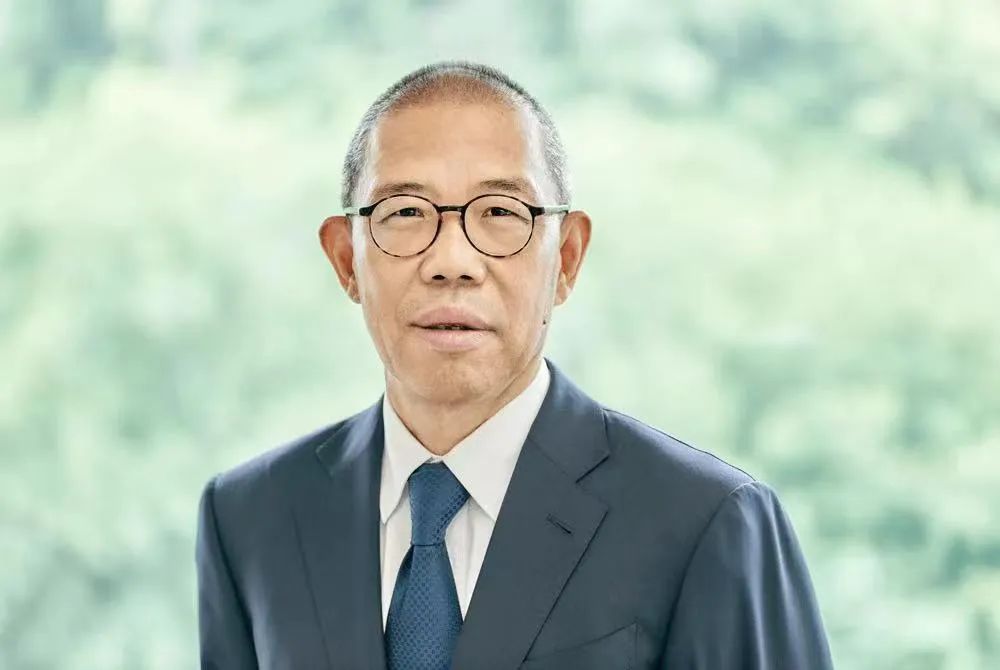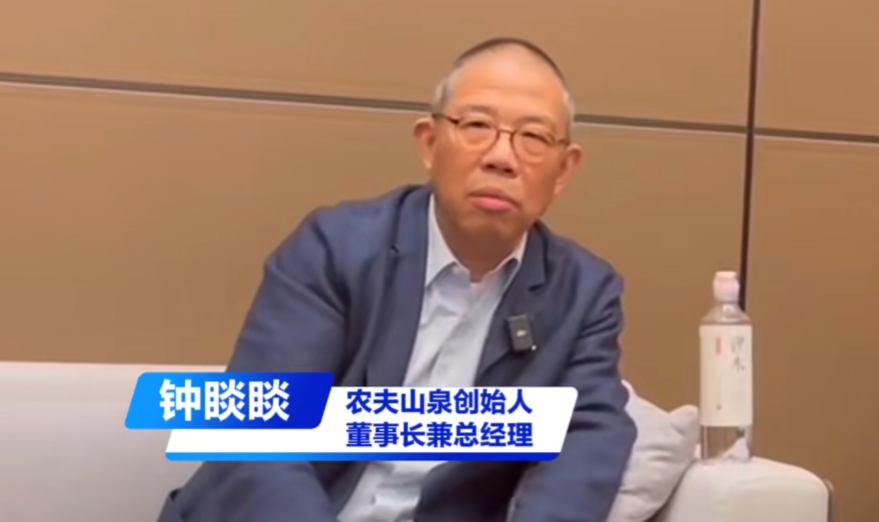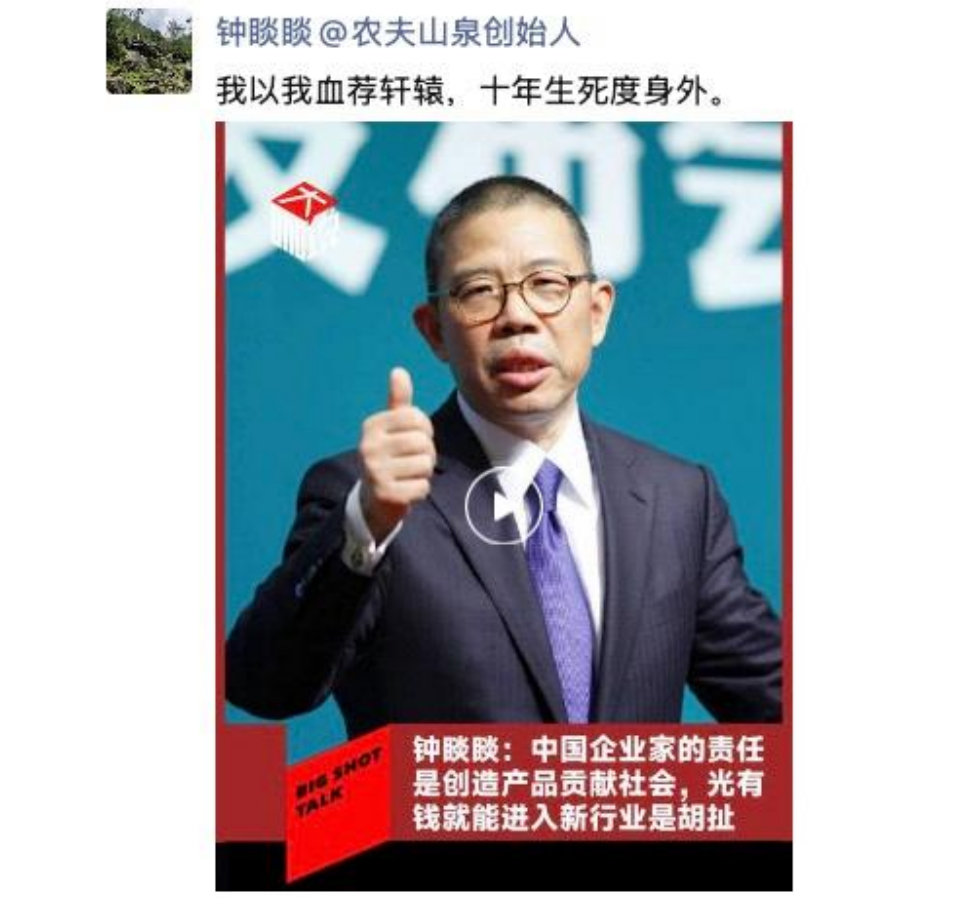Zhong Shanshan's Reflection on 'Algorithms' Represents a Critique of Internet Civilization
![]() 11/25 2024
11/25 2024
![]() 523
523
Introduction: Zhong Shanshan's courage to voice the sentiments that many dare to be angry but not speak out is extremely rare.

Written by Lu Yan | Produced by Lishi Business Review
1
'Does technology need values?' is a hotly debated topic in the global tech sector. However, I believe that it's not important to debate whether technology itself needs values; what's crucial is that those who apply technology must have values, an indisputable fact.
Yet in reality, many people exploit 'technology has no values' as an excuse to wield technology maliciously, making them culpable. The misuse of 'AI algorithms' is a prime example of wielding technology for evil. Before AI algorithms, China's internet news landscape was dominated by portals like Sina, Sohu, Tencent, and NetEase, which adhered to a strategy of quality content and employed numerous talented journalists and editors to produce reliable and serious news. After the advent of AI algorithms, however, they were quickly abused by emerging platforms like news feeds and short videos. These platforms not only failed to produce original content but also infringed upon the copyrights of other original content creators. Driven by traffic and profits, they manipulated algorithms to encourage the proliferation of false and vulgar content, plunging China's public opinion ecosystem into chaos.
Although society and the public have suffered greatly from these platforms' manipulation of algorithms, as these platforms grew into powerful giants, they leveraged their status as national high-tech enterprises and used legal threats to silence critics, leaving many be forced to keep one's resentment to oneself . This allowed the 'evil of algorithms' to run rampant unchecked.
Fortunately, a prominent public figure with significant social influence recently dared to criticize this phenomenon openly: Zhong Shanshan, the founder of Nongfu Spring.
2
On November 21, during a media event for Nongfu Spring, Zhong Shanshan detailed the company's strategies in agriculture, including oranges and tea, and shared his thoughts on 'the value of the internet and human civilization.'

Zhong believes that 'internet civilization, like agricultural, industrial, and electrical civilizations, is a manifestation of human civilization. Each civilization evolves through conflicts between human behavior, values, and interests, gradually finding a balance that serves humanity, a state known as 'moderation.' Therefore, all civilizations have limits, and when a civilization exceeds its bounds, it harms the vulnerable.'
Zhong currently suffers from such 'excesses,' primarily from internet content platforms like Toutiao and Douyin, which rely on AI algorithms. These platforms host defamatory comments, images, and videos about Zhong, such as depicting him with a mustache and dressed as a Japanese person. Instead of removing such content, these platforms long-term tolerate and even encourage the production of false rumors, particularly those that generate high traffic. For instance, Toutiao actively created trending topics like 'Would you support Nongfu Spring if it went bankrupt?' to amplify rumors and reward creators who defamed Nongfu Spring with traffic dividends.
Ultimately, Zhong decided to publicly confront Toutiao and Douyin not only because his interests were harmed but also because he recognized a more severe societal issue: even individuals with social status like him couldn't escape harm from these major platforms. Ordinary enterprises and individuals face an even greater challenge, prompting Zhong to refuse to compromise.
Moreover, the victims aren't just those defamed; content creators and ordinary users encouraged by these platforms are also harmed. Under correct incentives, most people do the right thing, but misleading incentives often lead ordinary people astray. These rumor-mongers could pursue legitimate livelihoods but are induced by platforms into wrongdoing, losing their moral compass and facing legal consequences, while the platforms profit and evade responsibility by claiming 'platform neutrality.' Ordinary users are also harmed, trapped in information silos with no escape.
As seen above, algorithms manipulating traffic have a profound impact on society's underlying logic, affecting both the victims of rumors and billions of ordinary users. This underlying logic, in turn, affects society's superstructure, causing severe structural damage, of which Nongfu Spring is a victim.
Based on this reflection, Zhong publicly called on ByteDance founder Zhang Yiming and proposed a systematic counterattack from business ethics to operational actions. He stated, 'As the actual controller of Toutiao and Douyin, your enterprise is not just profit-driven but also a platform with significant public opinion influence. I urge you to uphold the norms and rules of corporate civilization, which should be impartial to all, strong and weak alike, providing fairness and justice for humanity.'

Regarding upholding corporate civilization, Zhong offered specific suggestions, urging Zhang Yiming to publicly disclose the technical standards and algorithms behind Toutiao and Douyin. He said, 'No standard or rule should remain undisclosed. Only by making them public can all users evaluate and critique them, meeting basic human civilization standards.'
I believe Zhong's suggestion is highly reasonable and the best way to eradicate the misuse of algorithms by these platforms. Platforms can no longer hide behind 'technology has no values' to evade responsibility. Their algorithms clearly show if they exploit human weaknesses, promote false content, or intentionally trap the public in information silos. I hope Zhang Yiming dares to respond to Zhong's criticism and suggestions, disclosing the algorithms and restoring purity to China's public opinion ecosystem.
3
In recent years, a troubling trend has emerged in China's business world: more and more enterprises are afraid to speak out, especially against social ills. They maintain a superficial harmony, disregarding right and wrong, valuing only self-interest. Imagine if Zhong hadn't spoken out against the widely condemned 'evil of algorithms'; who else would dare, drawing significant public attention?
I believe Zhong's public statement is significant for China's business and tech civilizations, prompting societal reflection on contemporary phenomena. However, it also sparked new public controversy for Zhong online, but I believe he's well-prepared and determined to fight until the end.

On the night of his public call to Zhang Yiming, Zhong posted on WeChat Moments, 'I offer my blood to serve the nation, enduring life and death beyond myself for a decade.' The first part is from Lu Xun's 'Self-Portrait in a Small Mirror,' meaning 'I offer my blood to serve the Chinese nation.' The second part adapts a line from Su Shi's 'Riverside Town.' This quote reveals Zhong's loneliness and solemnity but also his unwavering determination to uphold modern corporate civilization.
Regarding public controversy over Zhong's call to Zhang Yiming, I urge rationality over speculation. Zhong's courage to voice what many dare not speak is rare. China needs more people like Zhong. Instead of questioning his efforts, we should encourage more public figures like him to speak out against societal injustices.
Only when more people speak up can we hope to achieve a society where the strong are not isolated and the weak are not afraid. Silence emboldens wrongdoers, harming ordinary people. For ourselves and future generations to escape information silos and chaotic public opinion devoid of serious, truthful content, we must speak the truth.







